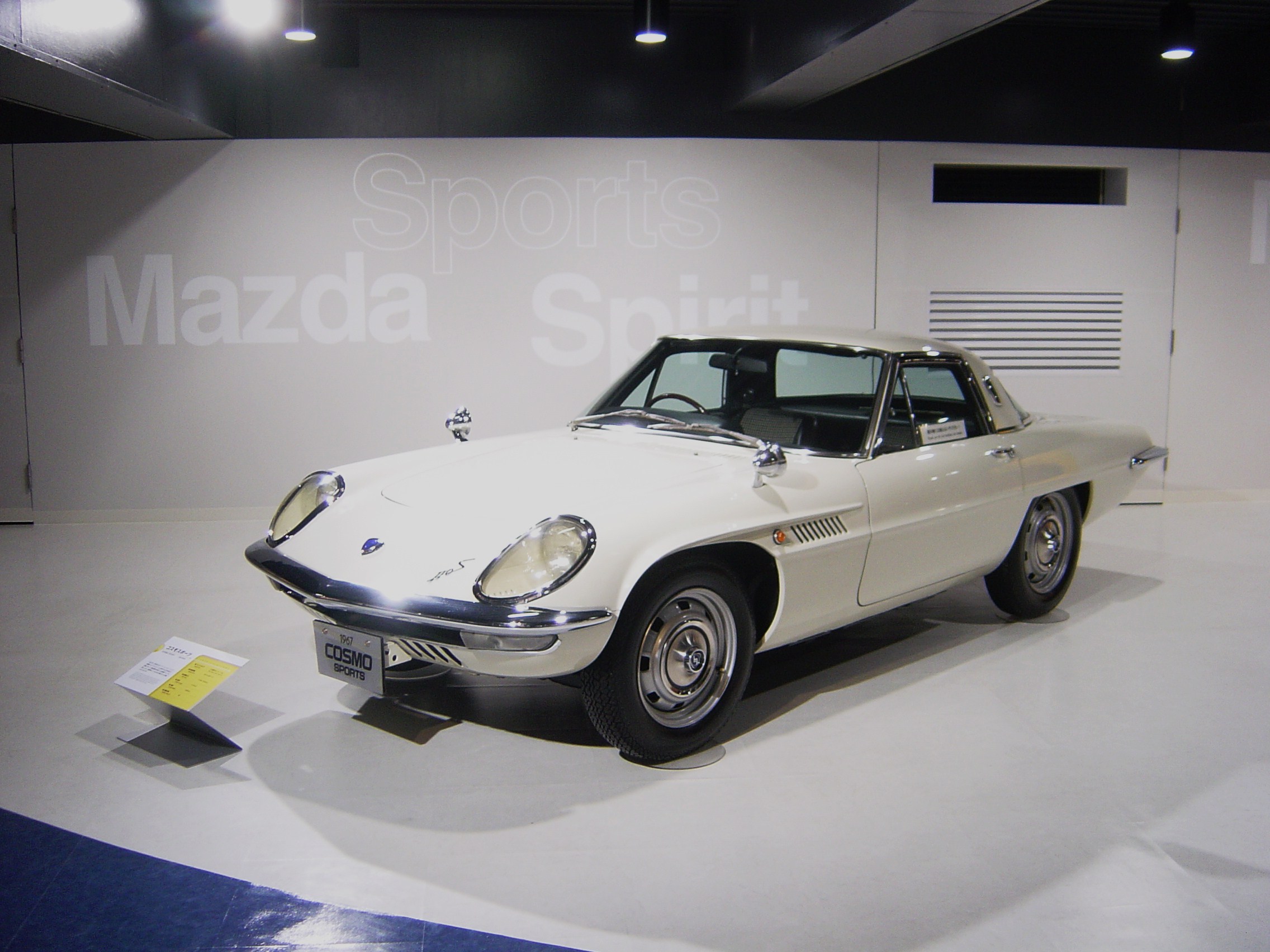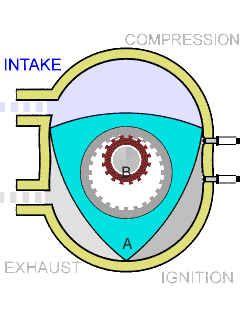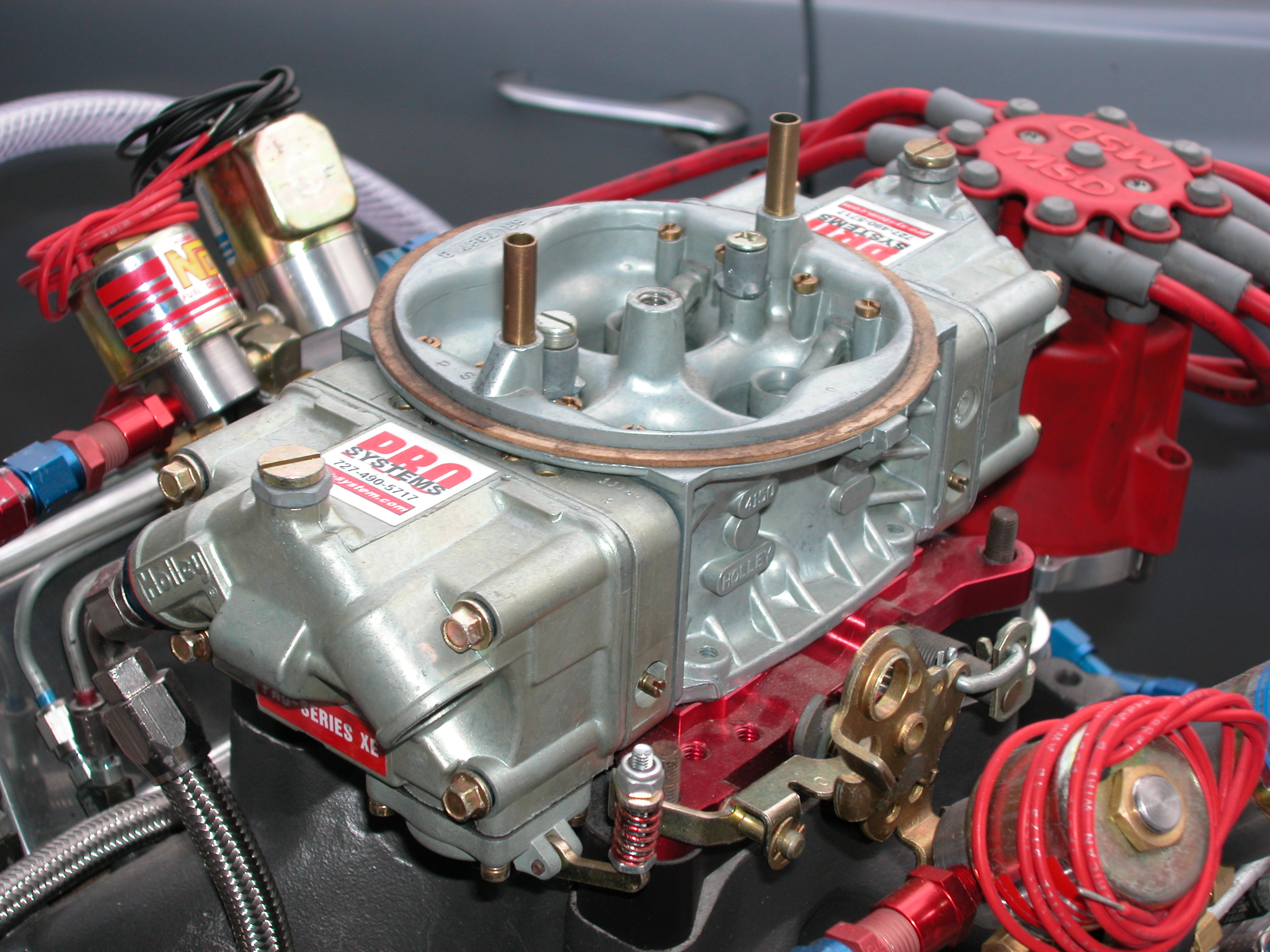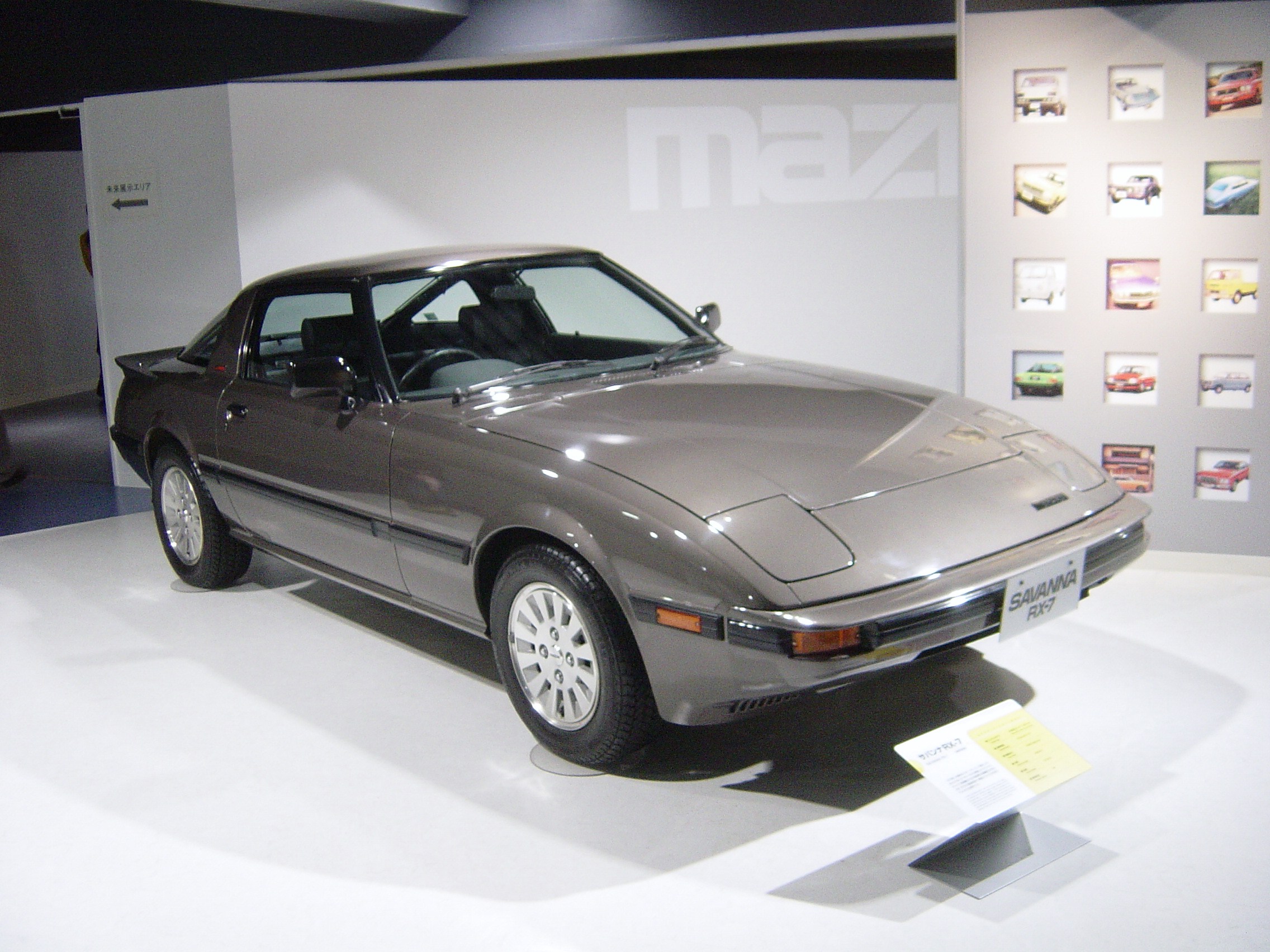|
Eunos Cosmo
The is an automobile which was produced by Mazda from 1967 until 1995. Throughout its history, the Cosmo served as a "halo" vehicle for Mazda, with the first Cosmo successfully launching the Mazda Wankel engine. The final generation of Cosmo served as Mazda's flagship vehicle in Japan, being sold as the Eunos Cosmo through its luxury Eunos division in Japan. Mazda chose to use the name ''"cosmo"'', reflecting international cultural fascination with the Space Race, as Mazda wanted to showcase the rotary engine as forward-thinking, with a focus on future developments and technology. Series L10A/L10B (1967–1972) The first Mazda to bear the Cosmo name (called the 110S on models intended for export) was (along with the NSU Ro80) one of the first production cars to feature a 2-rotor Wankel engine. A prototype was presented at the 1964 Tokyo Motor Show, one month before the 1964 Summer Olympics, and after the introduction of the NSU Spider at the Frankfurt Motor Show; 80 pre-pro ... [...More Info...] [...Related Items...] OR: [Wikipedia] [Google] [Baidu] |
Mazda
, commonly referred to as simply Mazda, is a Japanese Multinational corporation, multinational Automotive industry, automotive manufacturer headquartered in Fuchū, Hiroshima (town), Fuchū, Hiroshima Prefecture, Hiroshima, Japan. In 2015, Mazda produced 1.5 million vehicles for global sales, the majority of which (nearly one million) were produced in the company's Japanese plants, with the remainder coming from a variety of other plants worldwide. During this time, Mazda was the 15th-largest automaker in terms of production globally. History Creation Mazda began as the Toyo Cork Kogyo Co., Ltd, as a cork (plug), cork-making factory founded in Hiroshima, Japan, 30 January 1920. Toyo Cork Kogyo renamed itself to Toyo Kogyo Co., Ltd. in 1927. In the late 1920s the company had to be saved from bankruptcy by Hiroshima Saving Bank and other business leaders in Hiroshima. In 1931, Toyo Kogyo moved from manufacturing machine tools to vehicles with the introduction of t ... [...More Info...] [...Related Items...] OR: [Wikipedia] [Google] [Baidu] |
Wankel Engine
The Wankel engine (, ) is a type of internal combustion engine using an eccentric rotary design to convert pressure into rotating motion. It was invented by German engineer Felix Wankel, and designed by German engineer Hanns-Dieter Paschke. The Wankel engine's rotor, which creates the turning motion, is similar in shape to a Reuleaux triangle, with the sides having less curvature. The rotor rotates inside an oval-like epitrochoidal housing, around a central output shaft. The rotor spins in a hula-hoop fashion around the central output shaft, spinning the shaft via toothed gearing. Due to its inherent poor thermodynamics, the Wankel engine has a significantly worse thermal efficiency and worse exhaust gas behaviour when compared against the Otto engine or the Diesel engine, which is why the Wankel engine has seen limited use since its introduction in the 1960s. However, its advantages of compact design, smoothness, lower weight and less parts over the aforementioned reciproc ... [...More Info...] [...Related Items...] OR: [Wikipedia] [Google] [Baidu] |
Manual Transmission
A manual transmission (MT), also known as manual gearbox, standard transmission (in Canada, the United Kingdom, and the United States), or stick shift (in the United States), is a multi-speed motor vehicle transmission system, where gear changes require the driver to manually select the gears by operating a gear stick and clutch (which is usually a foot pedal for cars or a hand lever for motorcycles). Early automobiles used ''sliding-mesh'' manual transmissions with up to three forward gear ratios. Since the 1950s, ''constant-mesh'' manual transmissions have become increasingly commonplace and the number of forward ratios has increased to 5-speed and 6-speed manual transmissions for current vehicles. The alternative to a manual transmission is an automatic transmission; common types of automatic transmissions are the hydraulic automatic transmission (AT), and the continuously variable transmission (CVT), whereas the automated manual transmission (AMT) and dual-clutch tran ... [...More Info...] [...Related Items...] OR: [Wikipedia] [Google] [Baidu] |
Carburetor
A carburetor (also spelled carburettor) is a device used by an internal combustion engine to control and mix air and fuel entering the engine. The primary method of adding fuel to the intake air is through the venturi tube in the main metering circuit, however various other components are also used to provide extra fuel or air in specific circumstances. Since the 1990s, carburetors have been largely replaced by fuel injection for cars and trucks, however carburetors are still used by some small engines (e.g. lawnmowers, generators and concrete mixers) and motorcycles. Diesel engines have always used fuel injection instead of carburetors. Etymology The name "carburetor" is derived from the verb ''carburet'', which means "to combine with carbon," or in particular, "to enrich a gas by combining it with carbon or hydrocarbons." Thus a carburetor mixes intake air with hydrocarbon-based fuel, such as petrol or autogas (LPG). The name is spelled "carburetor" in American Eng ... [...More Info...] [...Related Items...] OR: [Wikipedia] [Google] [Baidu] |
Hitachi, Ltd
() is a Japanese multinational conglomerate corporation headquartered in Chiyoda, Tokyo, Japan. It is the parent company of the Hitachi Group (''Hitachi Gurūpu'') and had formed part of the Nissan ''zaibatsu'' and later DKB Group and Fuyo Group of companies before DKB and Fuji Bank (the core Fuyo Group company) merged into the Mizuho Financial Group. As of 2020, Hitachi conducts business ranging from IT, including AI, the Internet of Things, and big data, to infrastructure. Hitachi is listed on the Tokyo Stock Exchange and Nagoya Stock Exchange and its Tokyo listing is a constituent of the Nikkei 225 and TOPIX Core30 indices. It is ranked 38th in the 2012 Fortune Global 500 and 129th in the 2012 Forbes Global 2000. History Hitachi was founded in 1910 by electrical engineer Namihei Odaira (1874–1951) in Ibaraki Prefecture. The company's first product was Japan's first induction motor, initially developed for use in copper mining. The company began as an in-house ven ... [...More Info...] [...Related Items...] OR: [Wikipedia] [Google] [Baidu] |
Mazda Cosmo L10A Rear-right 2016 Shanghai Auto Museum
, commonly referred to as simply Mazda, is a Japanese multinational automotive manufacturer headquartered in Fuchū, Hiroshima, Japan. In 2015, Mazda produced 1.5 million vehicles for global sales, the majority of which (nearly one million) were produced in the company's Japanese plants, with the remainder coming from a variety of other plants worldwide. During this time, Mazda was the 15th-largest automaker in terms of production globally. History Creation Mazda began as the Toyo Cork Kogyo Co., Ltd, as a cork-making factory founded in Hiroshima, Japan, 30 January 1920. Toyo Cork Kogyo renamed itself to Toyo Kogyo Co., Ltd. in 1927. In the late 1920s the company had to be saved from bankruptcy by Hiroshima Saving Bank and other business leaders in Hiroshima. In 1931, Toyo Kogyo moved from manufacturing machine tools to vehicles with the introduction of the Mazda-Go auto rickshaw. The name ''Mazda'' came into existence with the production of the company's fir ... [...More Info...] [...Related Items...] OR: [Wikipedia] [Google] [Baidu] |
Mazda R100
The , also marketed prominently as the Mazda 323, Mazda Protegé and Mazda Allegro, is a small family car that was manufactured by Mazda between 1963 and 2003. The Familia line was replaced by the Mazda3/Axela for 2004. It was marketed as the ''Familia'' in Japan, which means "family" in Latin. For export, earlier models were sold with nameplates including: "800", "1000", "1200", and "1300". In North America, the 1200 was replaced by the Mazda GLC, with newer models becoming "323" and "Protegé". In Europe, all Familias sold after 1977 were called "323". The Familia was also rebranded as the Ford Laser and Ford Meteor in Asia, Oceania, Southern Africa, some Latin American countries and, from 1991, as the Ford Escort and Mercury Tracer in North America. In addition, the Familia name was used as the Mazda Familia Wagon/Van, a badge-engineered version of the Nissan AD wagon (1994–2017) and Toyota Probox (2018–present). Mazda Familias were manufactured in the Hiroshima Plant ... [...More Info...] [...Related Items...] OR: [Wikipedia] [Google] [Baidu] |
Pferdestärke
Horsepower (hp) is a unit of measurement of power, or the rate at which work is done, usually in reference to the output of engines or motors. There are many different standards and types of horsepower. Two common definitions used today are the mechanical horsepower (or imperial horsepower), which is about 745.7 watts, and the metric horsepower, which is approximately 735.5 watts. The term was adopted in the late 18th century by Scottish engineer James Watt to compare the output of steam engines with the power of draft horses. It was later expanded to include the output power of other types of piston engines, as well as turbines, electric motors and other machinery. The definition of the unit varied among geographical regions. Most countries now use the SI unit watt for measurement of power. With the implementation of the EU Directive 80/181/EEC on 1 January 2010, the use of horsepower in the EU is permitted only as a supplementary unit. History The development of the ste ... [...More Info...] [...Related Items...] OR: [Wikipedia] [Google] [Baidu] |
Nürburgring
The is a 150,000 person capacity motorsports complex located in the town of Nürburg, Rhineland-Palatinate, Germany. It features a Grand Prix race track built in 1984, and a long "North loop" track, built in the 1920s, around the village and medieval castle of Nürburg in the Eifel mountains. The north loop is long and contains more than of elevation change from its lowest to highest points. Jackie Stewart nicknamed the track "The Green Hell". Originally, the track featured four configurations: the -long ("Whole Course"), which in turn consisted of the ("North Loop") and the ("South Loop"). There was also a warm-up loop called ("Finish Loop") or ("Concrete Loop"), around the pit area. Between 1982 and 1983, the start/finish area was demolished to create a new , which is now used for all major and international racing events. However, the shortened is still in use for racing, testing and public access. History 1925–1939: The beginning of the "''Nürburg-Ring ... [...More Info...] [...Related Items...] OR: [Wikipedia] [Google] [Baidu] |
The Return Of Ultraman
is a Japanese ''tokusatsu'' science fiction television series produced by Tsuburaya Productions. The fourth entry in the Ultra series, the series aired on Tokyo Broadcasting System from April 2, 1971, to March 31, 1972. It became successful enough to inspire a second "''Kaiju'' Boom" in Japan, with rival studios producing their own ''tokusatsu'' shows and Tsuburaya Productions producing additional Ultraman shows annually for the next three years. Prior to the series' release, ''Ultra Q'', ''Ultraman'', and '' Ultraseven'' were stand-alone titles however, ''Return of Ultraman'' is the first installment to unite the first three shows into an interconnected universe. Premise This series is a follow-up to the original ''Ultraman'' and '' Ultraseven'' that is set in 1971, four years after Ultraseven left Earth, and five years after Ultraman came to Earth. The first episode begins with a fight between two giant monsters named Takkong and Zazahn in Tokyo. Amid the monster destruction, ... [...More Info...] [...Related Items...] OR: [Wikipedia] [Google] [Baidu] |
Automobile Magazine
''Automobile'' was an American automobile magazine published by the Motor Trend Group. A group of former employees of '' Car and Driver'' led by David E. Davis founded ''Automobile'' in 1986 with support from Rupert Murdoch's News Corporation, using the credo ''No Boring Cars.'' ''Automobile'' distinguished itself as more of a lifestyle magazine than the other automotive publications, an editorial theme that Davis greatly expanded upon from his tenure as the editor of ''Car and Driver'', though it was a sister publication to '' Motor Trend''. Unlike other automobile magazines, ''Automobile'' didn't often conduct instrumented tests of cars or provide much technical data. Instead, the reviews of vehicles were subjective experiential reports with the cars in their naturally intended, real world environment. Additionally, ''Automobile'' reserved a good portion of each issue for covering vehicles no longer in production, but still relevant to collectors or automotive history as a ... [...More Info...] [...Related Items...] OR: [Wikipedia] [Google] [Baidu] |
Frankfurt Motor Show
The International Motor Show Germany or International Mobility Show Germany, in German known as the ''Internationale Automobil-Ausstellung'' (''IAA'' – International Automobile Exhibition), is one of the world's largest mobility shows. It consists of two separate fairs, that subdivided in 1991. While the ''IAA MOBILITY'' displays passenger vehicles, motorcycles and bikes, the ''IAA TRANSPORTATION'' specializes in commercial vehicles. Before the separation, the show was held solely at the Messe Frankfurt. The IAA is organized by the '' Verband der Automobilindustrie'' (VDA – Association of the German Automotive Industry) and is scheduled by the Organisation Internationale des Constructeurs d'Automobiles (OICA), who recognize the IAA as one of the "big five" (most prestigious auto shows worldwide). History In 1897 the first IAA was held at the Hotel Bristol in Berlin, with a total of eight motor vehicles on display. As the automobile became more known and accepted, the IAA b ... [...More Info...] [...Related Items...] OR: [Wikipedia] [Google] [Baidu] |








_1.jpg)